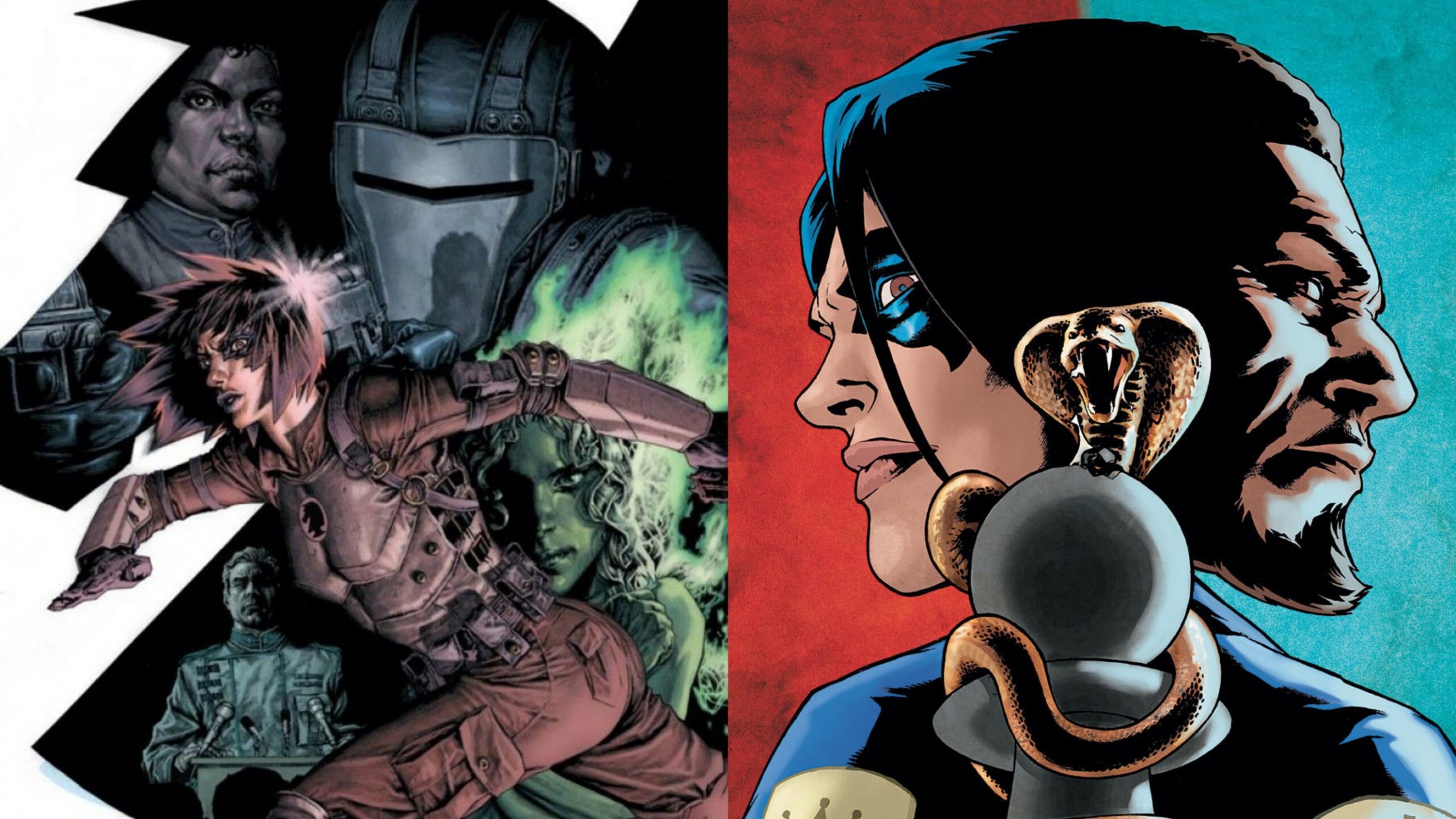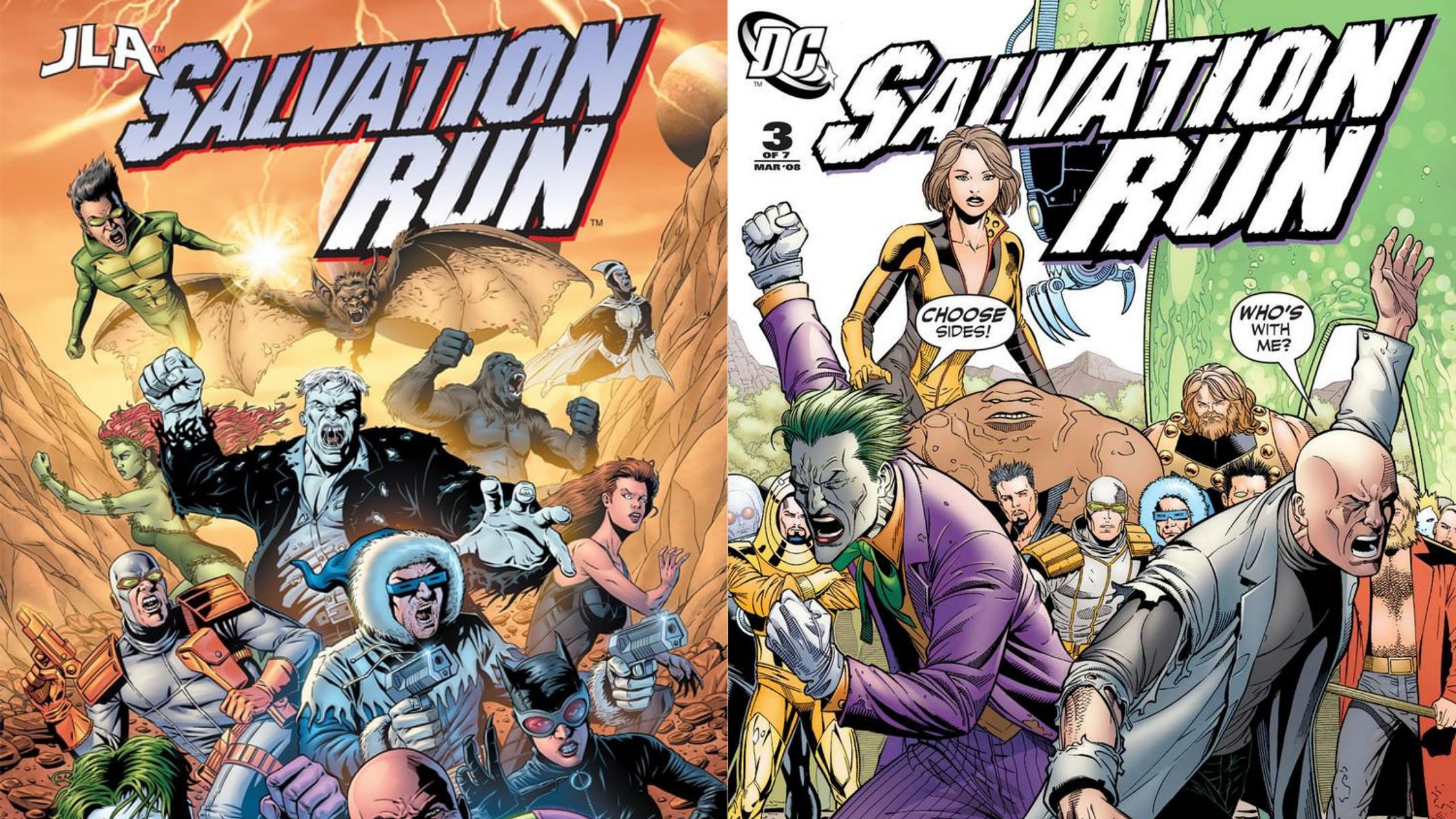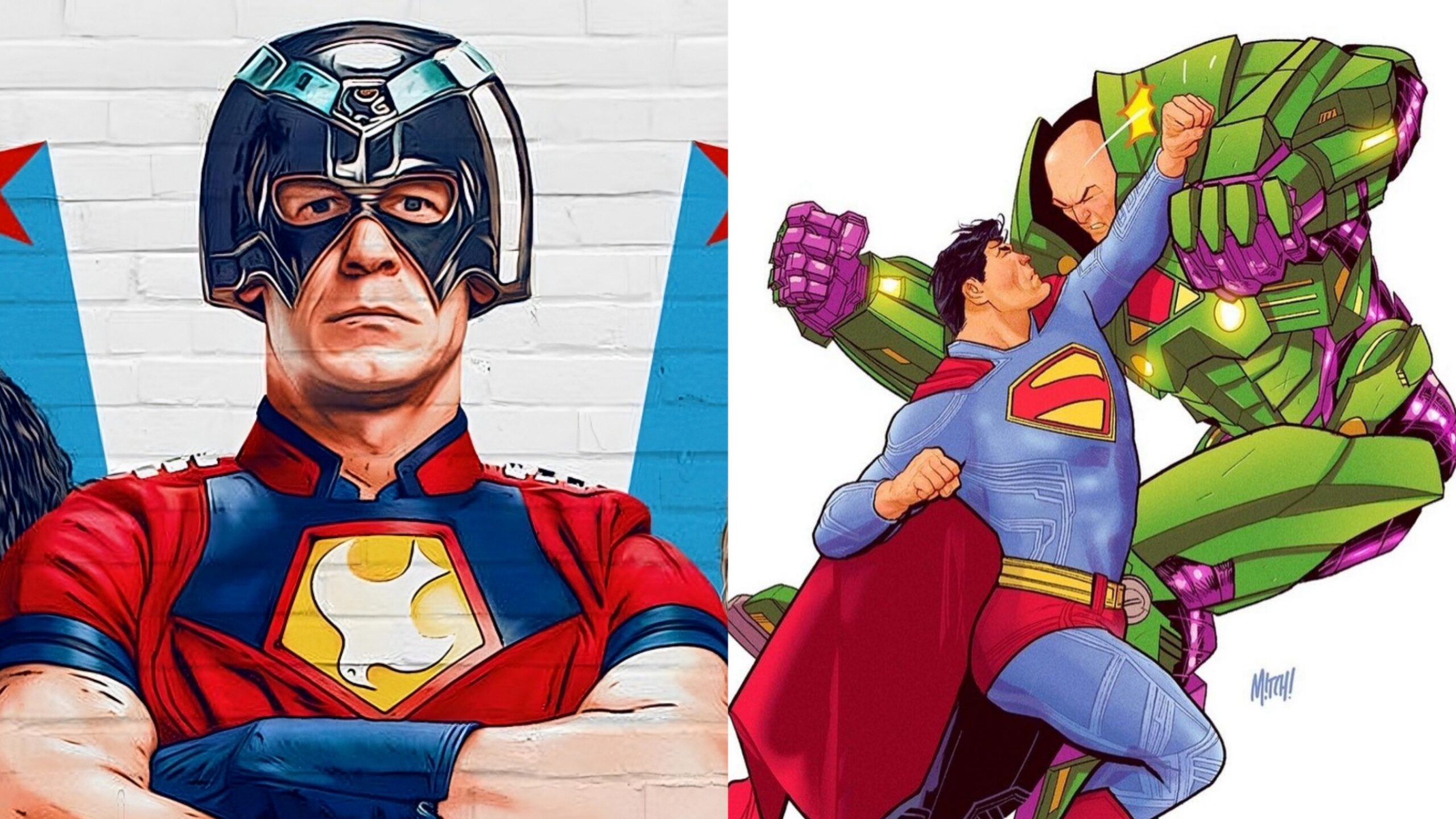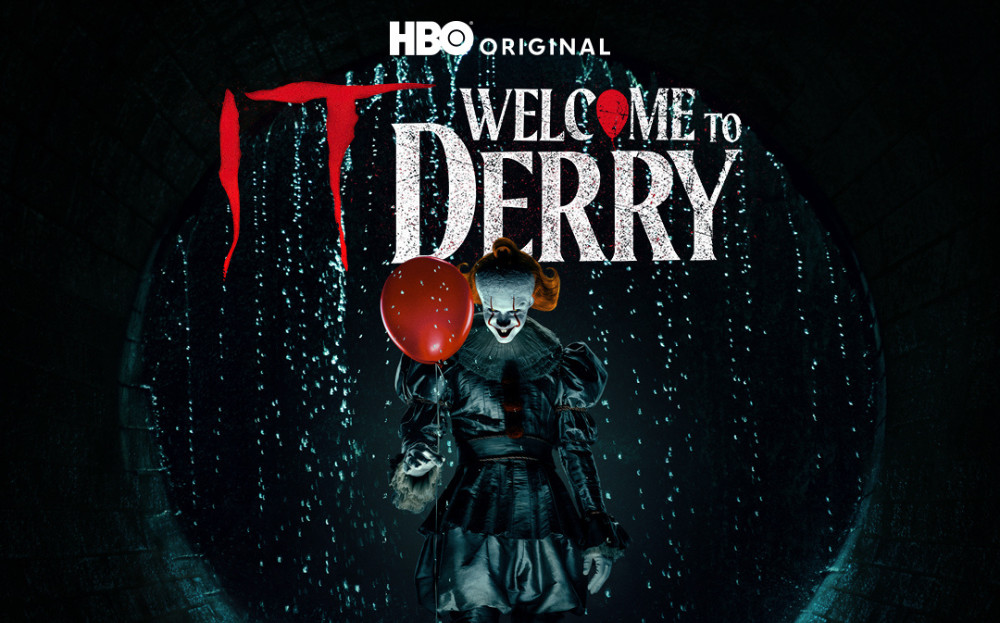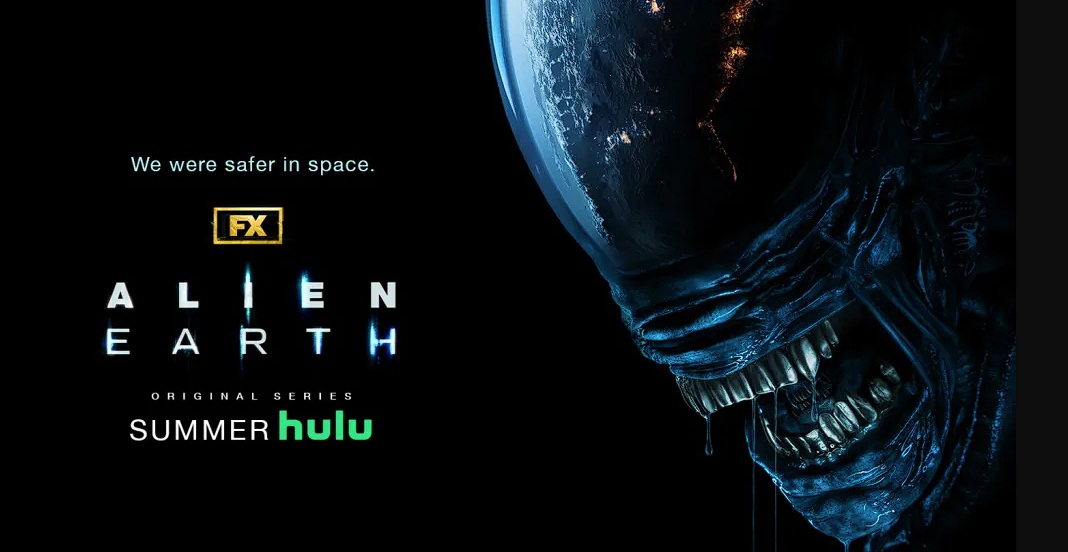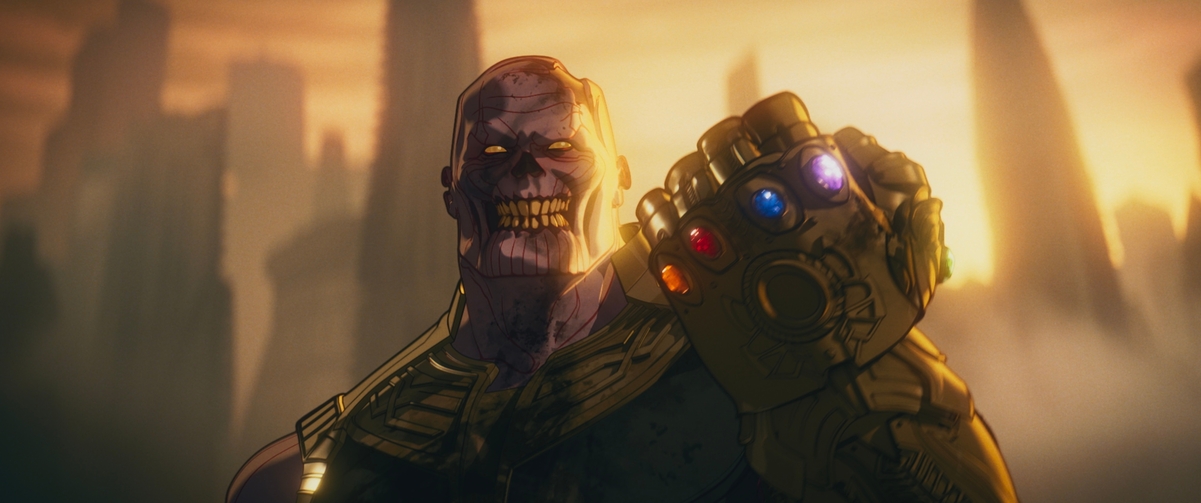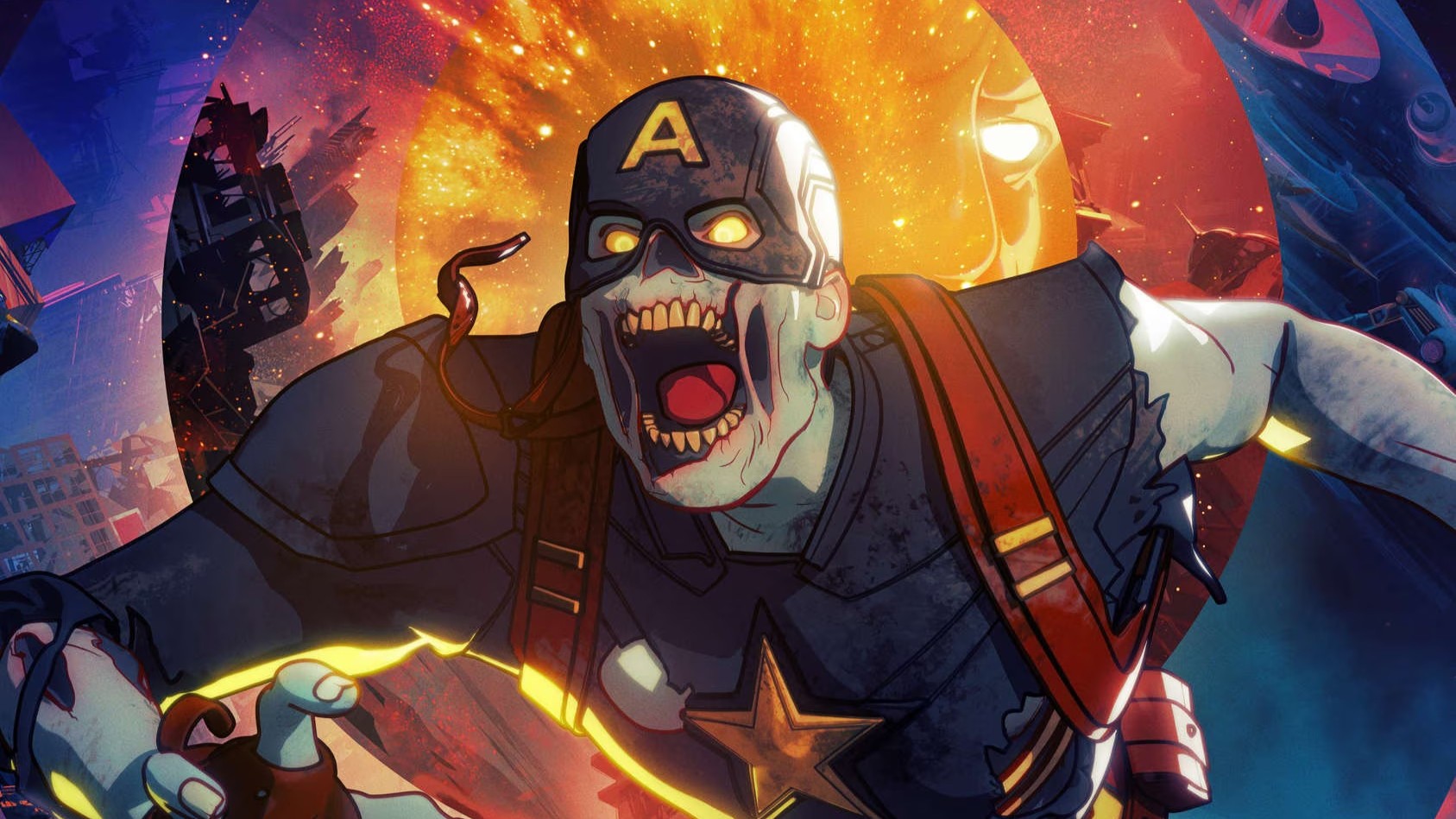“Peacemaker” has always been James Gunn’s punk-rock statement inside the DCU: funny, violent, and surprisingly vulnerable. The Season 2 finale, “Full Nelson,” proves it again. What begins as another round of chaos and contrition ends up rewriting the rulebook for the new DC Universe. It quite possibly sets the stage for “Superman: Man of Tomorrow” and introduces a darker, more paranoid age of metahumans.
“Peacemaker” S2 Episode 8 Recap – “Full Nelson”
After a season spent ricocheting through alternate realities, Peacemaker’s finale begins on a rare note of calm. A month earlier, Chris Smith (John Cena) and Emilia Harcourt (Jennifer Holland) share a low-key night out at Big Belly Burger and a Nelson concert that ends with a kiss. It’s the kind of normal, human moment Chris never thought he’d earn. But peace, in this universe, never lasts, no matter how hard he tries.

Cut to the present: Chris is in prison after the fallout of the last episode in the alternate dimension. He’s emotionally spent about losing his alternate family, and he refuses to see his friends. A.R.G.U.S. continues to toy with the Quantum Unfolding Chamber (QUC), Chris’s absurdly high-tech room capable of opening doors to other dimensions — each one stranger and deadlier than the last. In one particularly grotesque sequence, a team stumbles into a candy-coated nightmare world that quickly turns savage.
As A.R.G.U.S. pushes deeper into the QUC, Rick Flag Sr. (Frank Grillo), presumably taking heed of Lex Luthor (Nicholas Hoult), sees a sinister opportunity. His goal? To repurpose these portals into an off-the-books prison for metahumans, which is a place no one can ever escape.
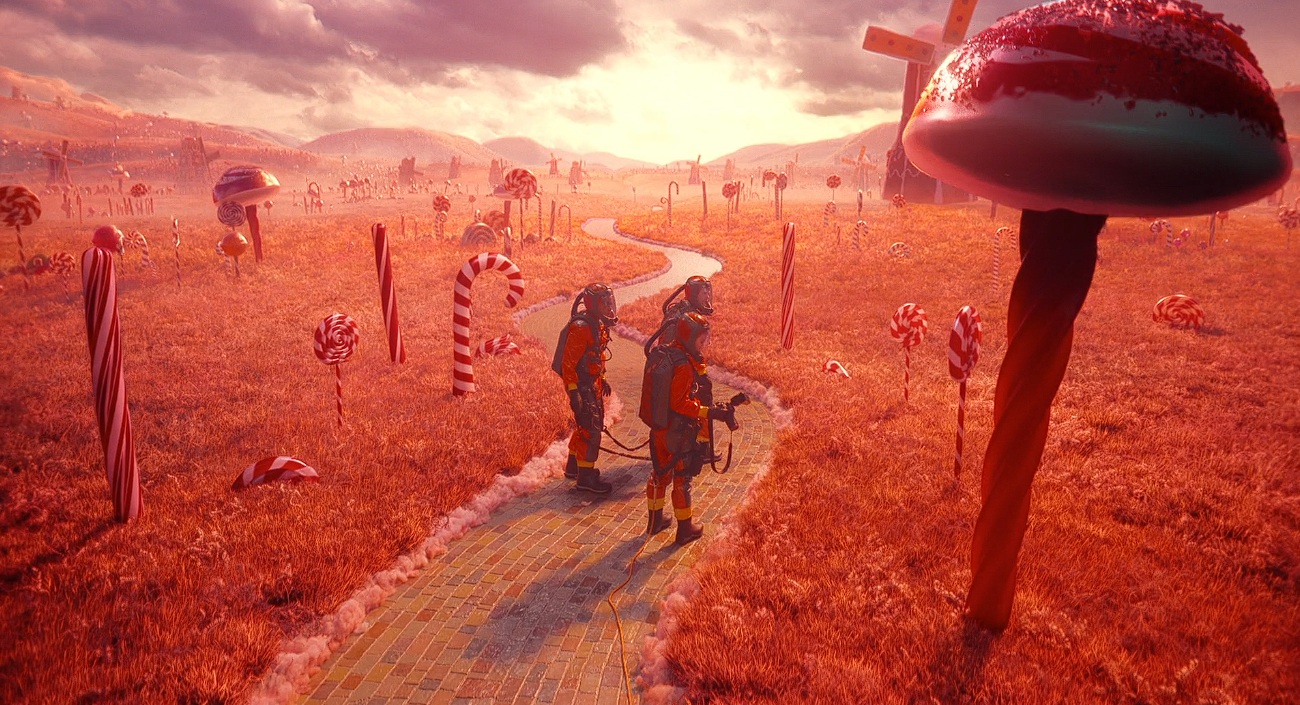
Meanwhile, Leota Adebayo (Danielle Brooks) and Adrian Chase (Freddie Stroma) bail Chris out of jail using Adrian’s ‘blood money.’ They bring him to a motel where the entire 11th Street Kids gang gathers for what feels like one last intervention. Chris breaks down, admitting he believes he’s an ‘angel of death’ – that everyone he’s ever loved has died because of him. His brother. Rick Flag. His father. Even his alternate self.
But Adebayo, the group’s moral centre, flips the narrative. She tells him he’s not a curse. He’s proof that survival itself is redemption. It’s one of the most emotional exchanges in the series, bringing back that bittersweet mix of humour and heart that made Peacemaker such an unexpected hit.
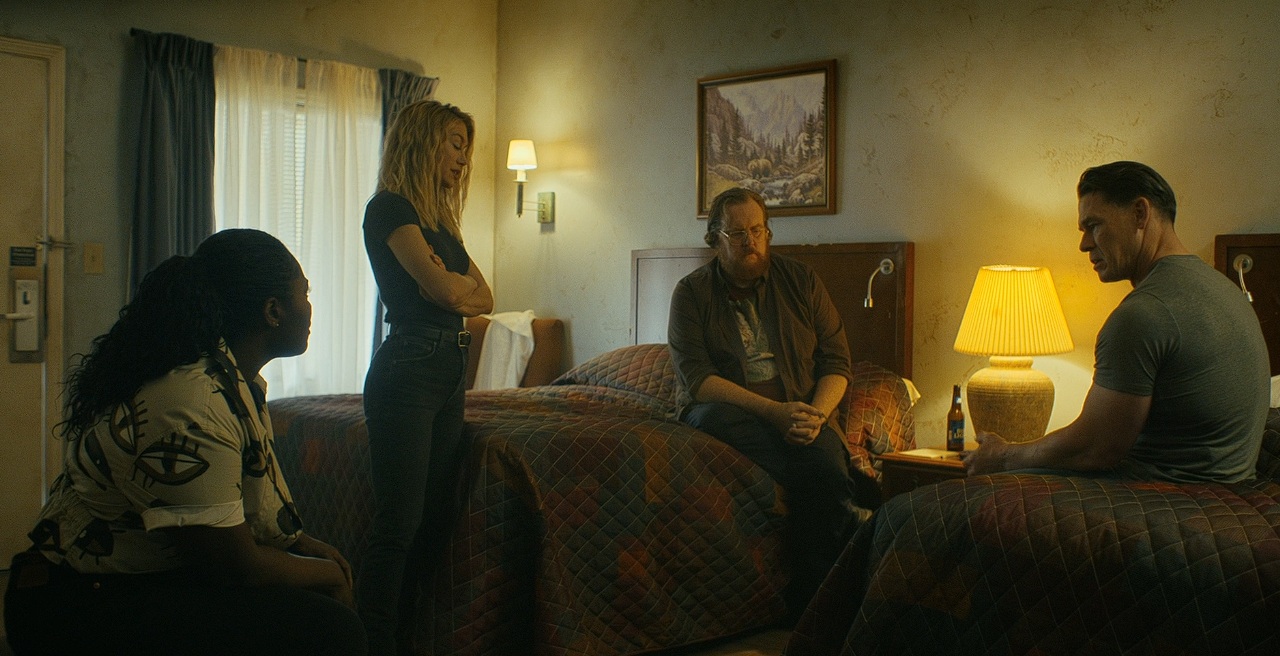
In the aftermath, Chris and Harcourt finally admit their feelings and presumably begin life as a couple. The 11th Street Kids decide to strike out of A.R.G.U.S. Together with Sasha Bordeaux (Sol Rodríguez) and Judomaster (Nhut Le), they form a new independent agency called Checkmate, dedicated to cleaning up the messes A.R.G.U.S. leaves behind. Their motto? “Making The World Better.”
In a fitting bookend, Peacemaker might have strived to keep the peace, but even he himself isn’t safe from the chaos of it all. In a brutal final twist, Chris is ambushed by A.R.G.U.S. operatives and dragged before Flag Sr., who sneers, “This is for Ricky, you piece of s**,”* before hurling him into a new dimension — Salvation, the metahuman prison Flag and Luthor have been constructing in secret.

The portal slams shut, leaving Chris stranded on a hostile alien world as monstrous growls echo in the trees around him.
Check… Checkmate!
First up, let’s address that happy ending first because what the heck, James? Pulling out the carpet from under our feet while we had ice cream in our hands? Not cool, dude!
Anyway, for longtime DC fans, the reveal of Checkmate in Peacemaker’s Season 2 finale wasn’t just a clever twist, as it was a deep pull from comic book espionage history.
Originally introduced in “Action Comics” #598 back in 1988 by Paul Kupperberg and Steve Erwin, Checkmate began as a black-ops intelligence agency spun out of Amanda Waller’s Task Force X. The organisation’s structure mirrors a chessboard. It has Kings, Queens, Bishops, Rooks, Knights, and Pawns, each representing a rank in a highly secretive hierarchy.
Created to operate in the shadows, Checkmate’s mission was clear: neutralise metahuman threats before they escalated into global crises. At various points in DC Comics, the group has worked alongside — and just as often, against — Waller’s Suicide Squad, leading to iconic crossovers like “The Janus Directive”. Later, in Greg Rucka’s acclaimed “The OMAC Project”, Checkmate was reimagined as a United Nations-affiliated force tasked with metahuman surveillance, counterterrorism, and world defence.
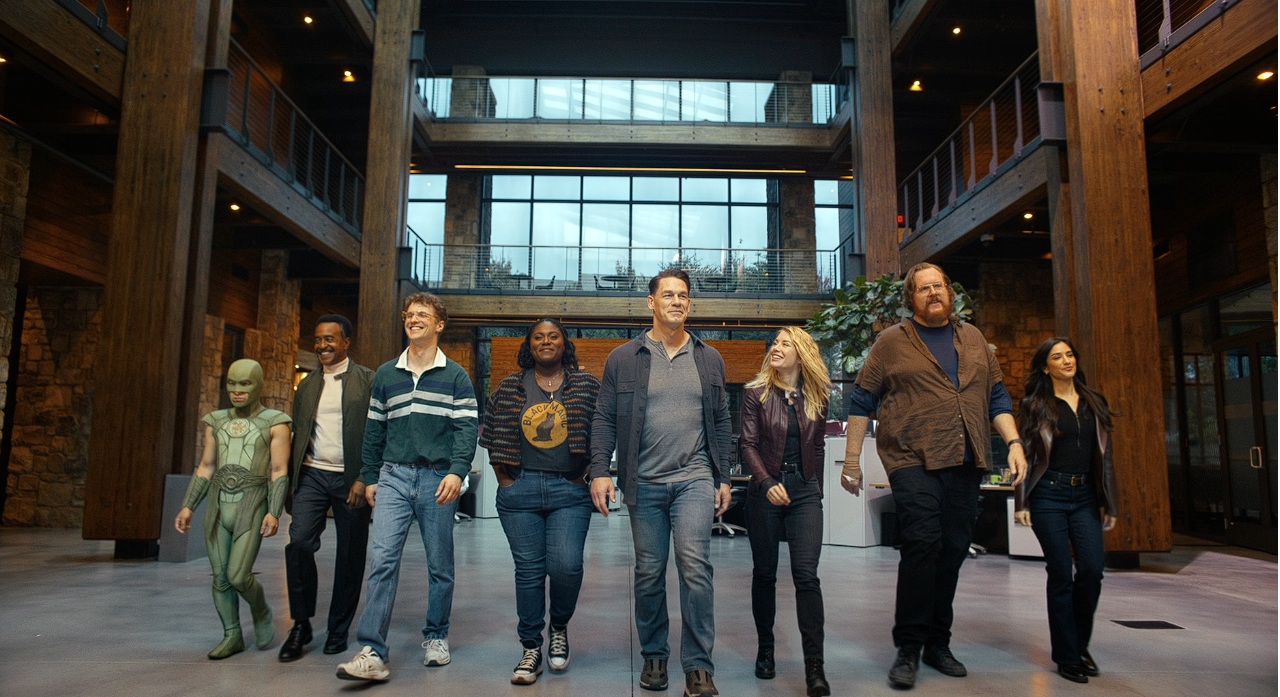
In the DCU, Gunn’s adaptation modernises the concept once more. Following the move away from A.R.G.U.S. amidst Rick Flag Sr.’s fall to the dark side, Harcourt, Adebayo, and the rest of the 11th Street Kids break away to form their own independent covert unit. It’s something this group has been craving for a while. It’s a chance to do good and to provide aid without having too many second thoughts about shady characters with manipulative behaviours.
Indeed, it’s a subtle but powerful shift. Where Waller’s version of Checkmate from the comics sought to contain superhumans, Harcourt’s team aims to protect them. Or at the very least, protect the world from the kind of corruption that turned A.R.G.U.S. into a dimensional gulag.
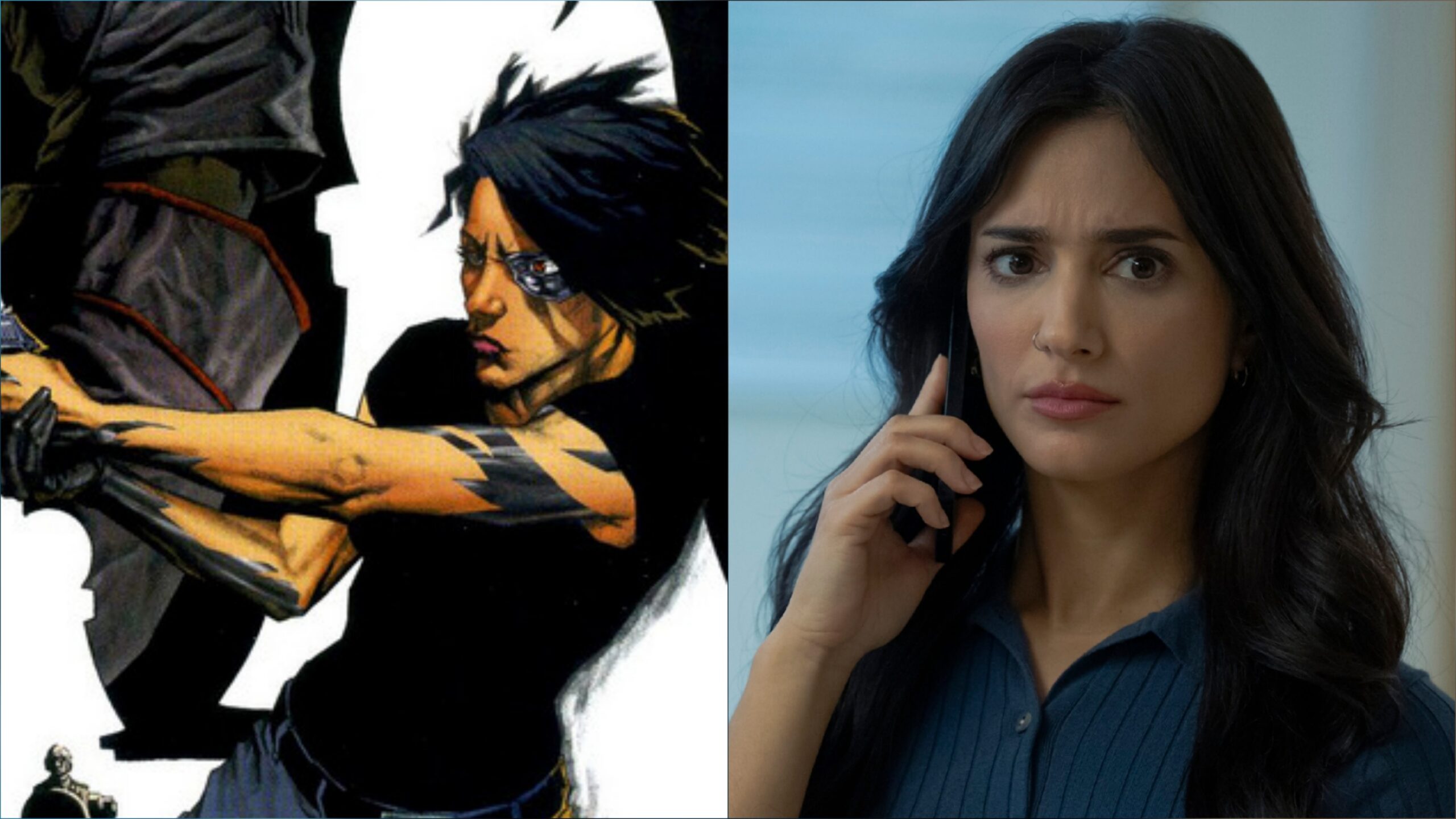
It’s a clean slate for Gunn’s espionage corner of the DCU, one that’s poised to be more different the next time we see them on screen. Speaking of which, it’s very likely the next time we see Sasha, she will probably be closer to her comics counterpart and be in the forefront of this organisation.
The Salvation Dimension
If the name of that empty world in “Peacemaker’s” finale sounds familiar to hardcore DC fans, that’s because it’s a twisted riff on “Salvation Run”, a 2007 DC Comics miniseries that saw the U.S. government exile its most dangerous supervillains to a distant planet.
In the comics, “Salvation Run” was born out of political paranoia. Following a series of catastrophic events from Black Adam’s global rampage to the Flash’s death, Amanda Waller and the President greenlit a covert initiative to deport metahuman criminals off-world. Using Boom Tube technology, the government sent countless villains, from the Joker to Lex Luthor, to a planet designated Cygnus 4019, which they believed to be uninhabited.
Of course, in true DC fashion, nothing went according to plan. Cygnus wasn’t just hostile. It was a training ground for the New Gods of Apokolips, ruled by DeSaad. What followed was chaos: fractured alliances, brutal power struggles, and a fight for survival among villains like Grodd, Cheetah, and Deadshot. Even the Martian Manhunter went undercover to monitor the situation, only to be exposed and captured.
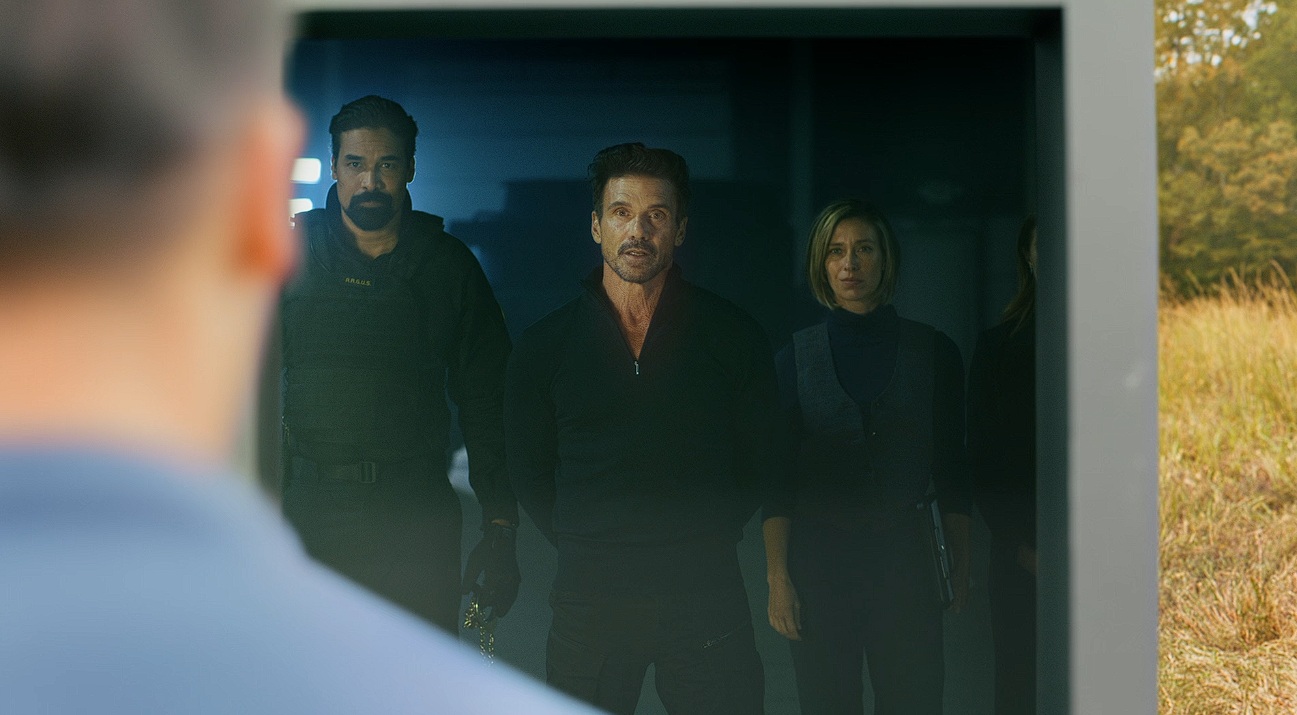
The finale of “Peacemaker” Season 2 reinterprets this idea. Instead of deporting villains through Boom Tubes, A.R.G.U.S. uses dimensional gateways to banish metahumans into a realm they call ‘Salvation’. It’s the same chilling concept with a modern, multiversal twist and one that ties directly into James Gunn’s expanding DCU.
By the time the episode ends, Chris Smith is hurled into Salvation — a barren, echoing dimension where monstrous growls close in around him. This isn’t just punishment; it’s a setup for something much bigger.
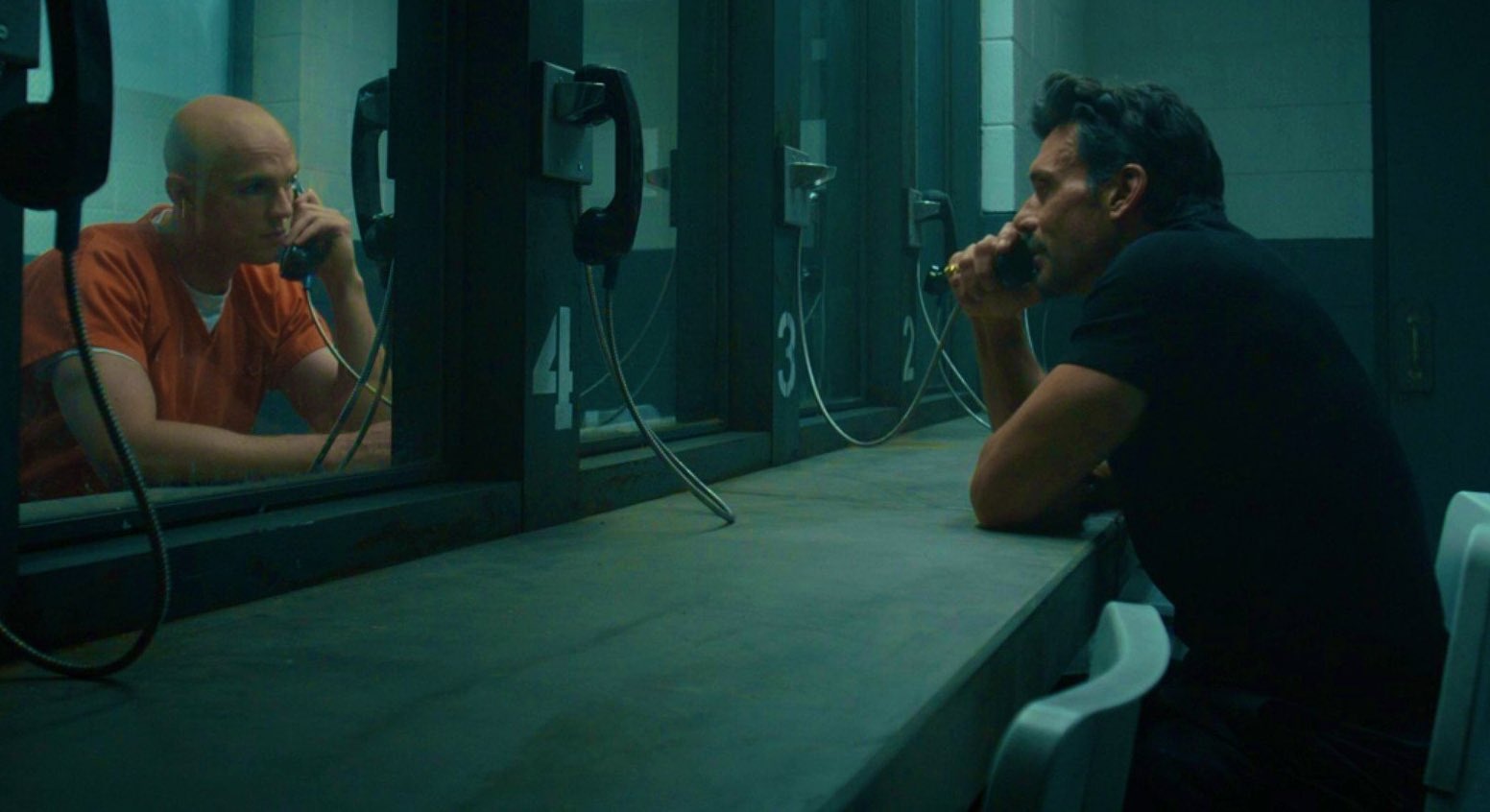
Flag Sr. and Luthor’s plan is chillingly bureaucratic: each time a superpowered being goes through a door, A.R.G.U.S. can shift the coordinates and lock them in a new, unreachable pocket reality. No bodies, no headlines, no accountability.
How “Peacemaker” Sets Up “Superman: Man of Tomorrow”
This is where things get really interesting. Gunn has confirmed that “Peacemaker” Season 2 directly ties into “Superman: Man of Tomorrow”, which means Salvation and Checkmate have the potential to collide with David Corenswet’s Man of Steel.
Well, of course, the biggest connection is ol’ baldy himself. Lex Luthor’s handprints are all over both projects. His secret partnership with Rick Flag Sr. shows the continuation of his anti-metahuman agenda. It’s the same ideology that he’ll continue to weaponise against Superman in “Man of Tomorrow”.
In a way, Rick Flag Sr.’s journey this season has been the same as Lex Luthor’s. He’s been shown to be an imperfect soldier since “Creature Commandos”. But over here, his anti-metahuman rhetoric showcases his devolution into this hateful human who’s blinded by rage. Lex hated Superman and stopped at nothing to get that alien out of the way, even though a dimensional rift opened up and almost swallowed Metropolis.
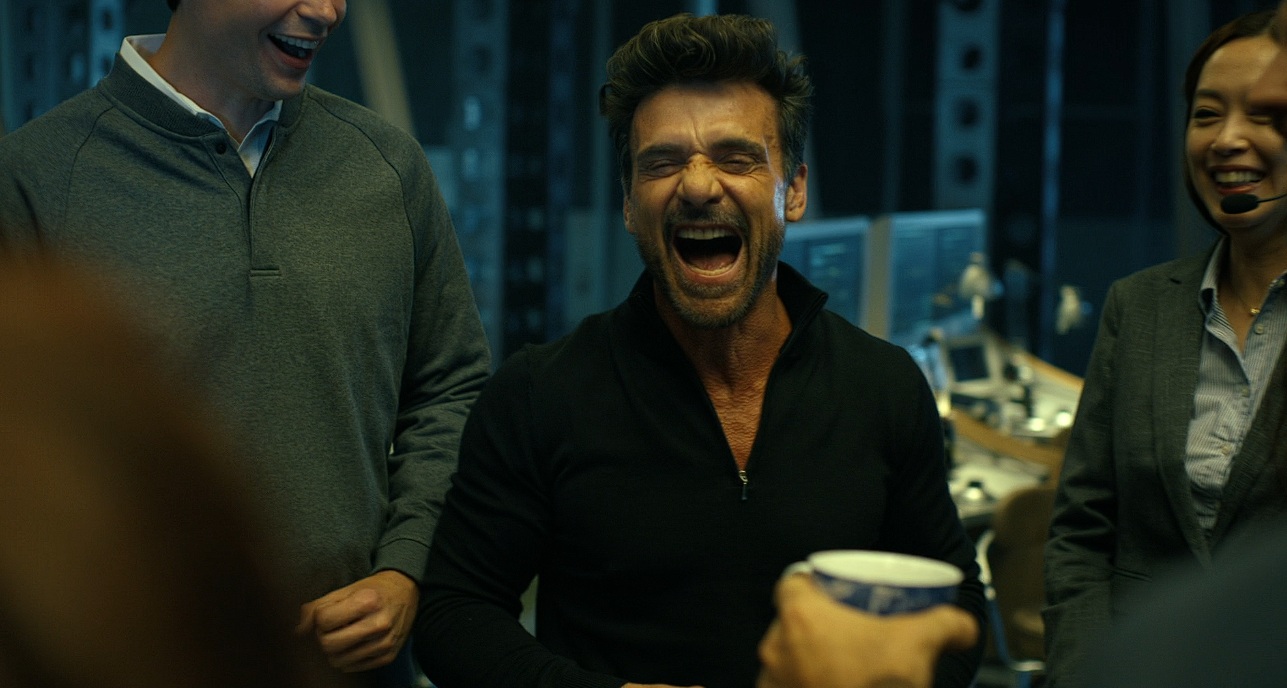
In the same way, Rick despises Peacemaker and continues Lex’s plan, which he actually opposed beforehand. His rage is borne from a bottled vengeance over his son’s death. And he’s finally brought everyone along with it.
The decision to weaponise the Salvation dimension as a permanent exile zone for metahumans marks a fundamental shift in the universe’s power dynamics. The U.S. government, under the guise of ‘containment’, is now actively removing superpowered beings from Earth. And it’s not just villains this time. Anyone with extraordinary abilities could be branded a threat.
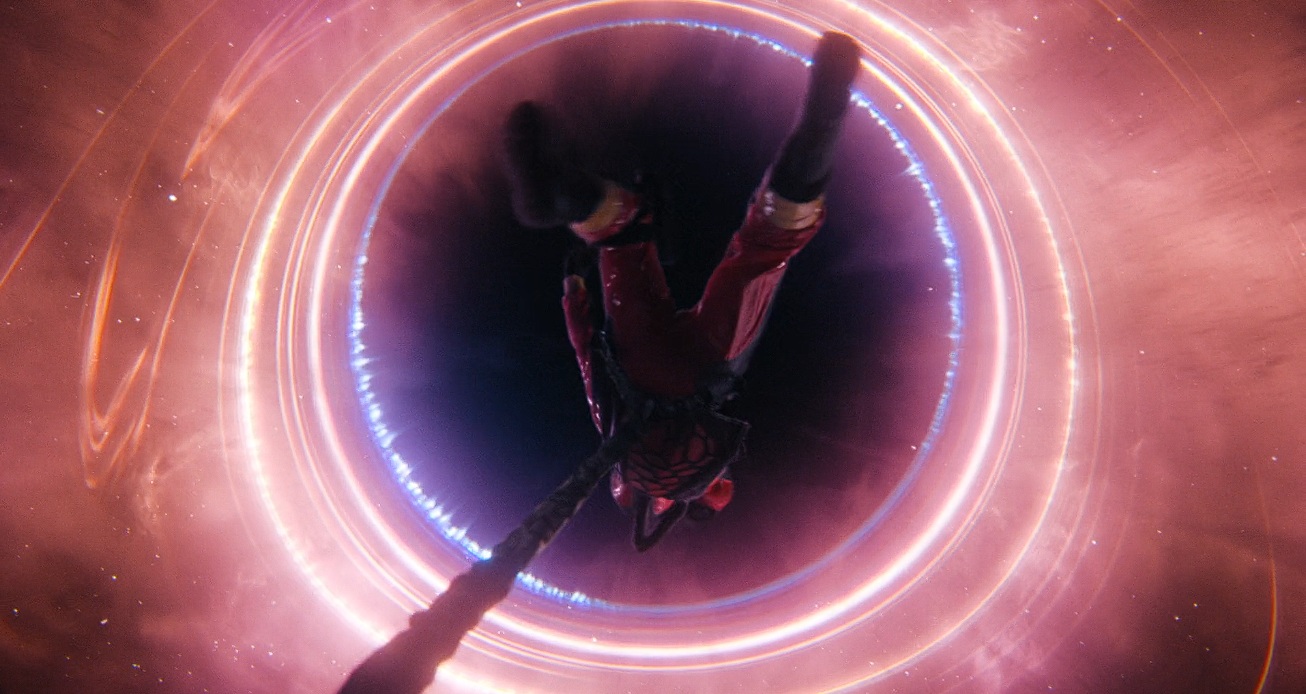
By the time Clark Kent takes flight again, the world will already be breaking apart. More organisations will be wary of unchecked power, ordinary citizens fearing gods among them, and secret agencies like Checkmate trying to define what “hero” even means.
The distrust of heroes, the weaponisation of fear, the moral greyness of the modern world. All of it sets the stage for Clark Kent to reintroduce hope to a DCU that’s once again forgotten what that means.
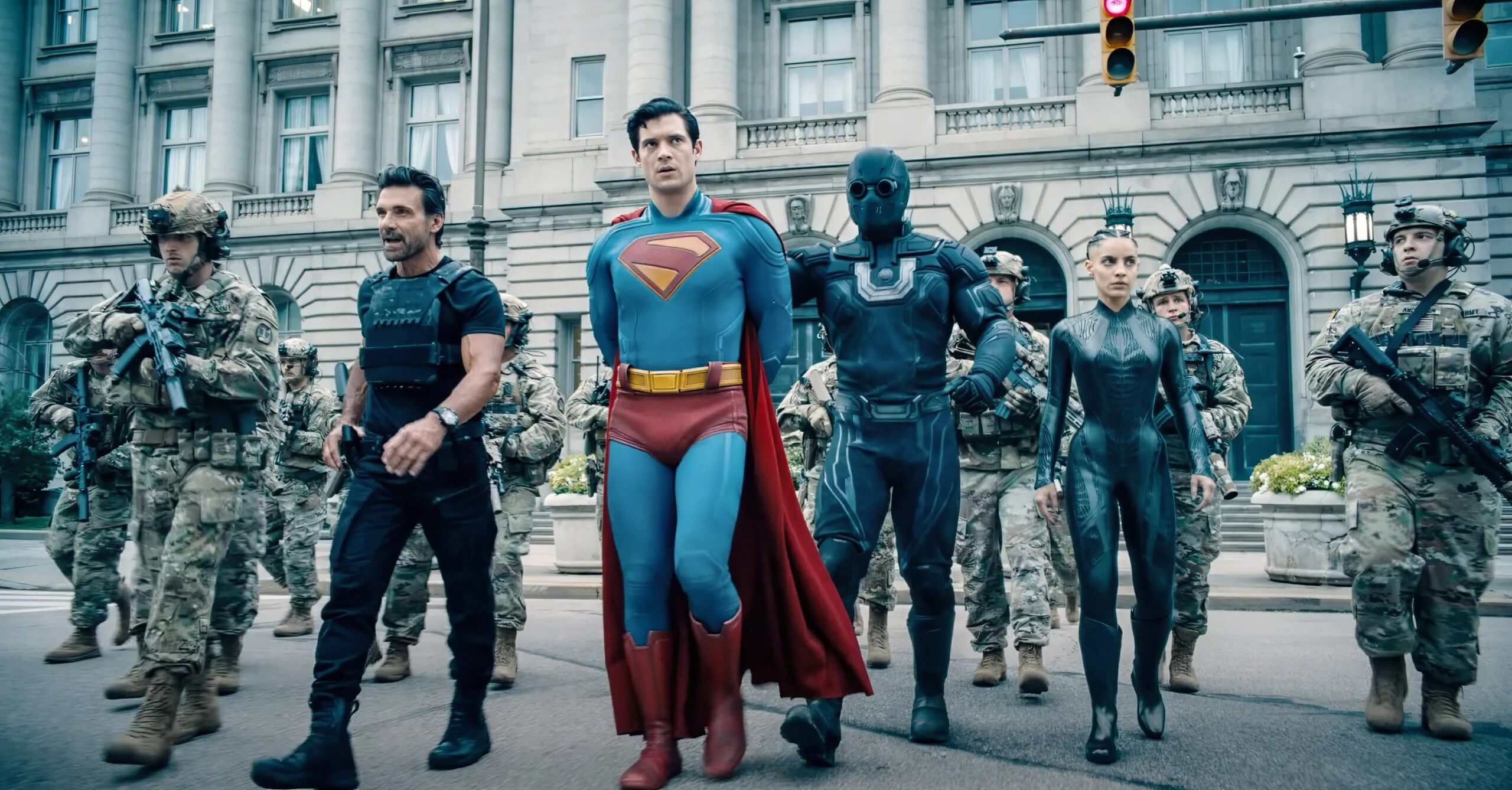
And don’t be surprised if Superman eventually discovers Salvation itself. A dimension full of forgotten heroes and villains screams crossover potential. It could easily become the stage for DC’s first big ensemble event. It’s one where Superman and Checkmate unite against whatever truly rules that world. Ahem, someone with brains perhaps?
Will There Be A “Peacemaker” Season 3?
There’s no official word yet on “Peacemaker” Season 3. But come on, would you expect John Cena and James Gunn to just give up on this character?
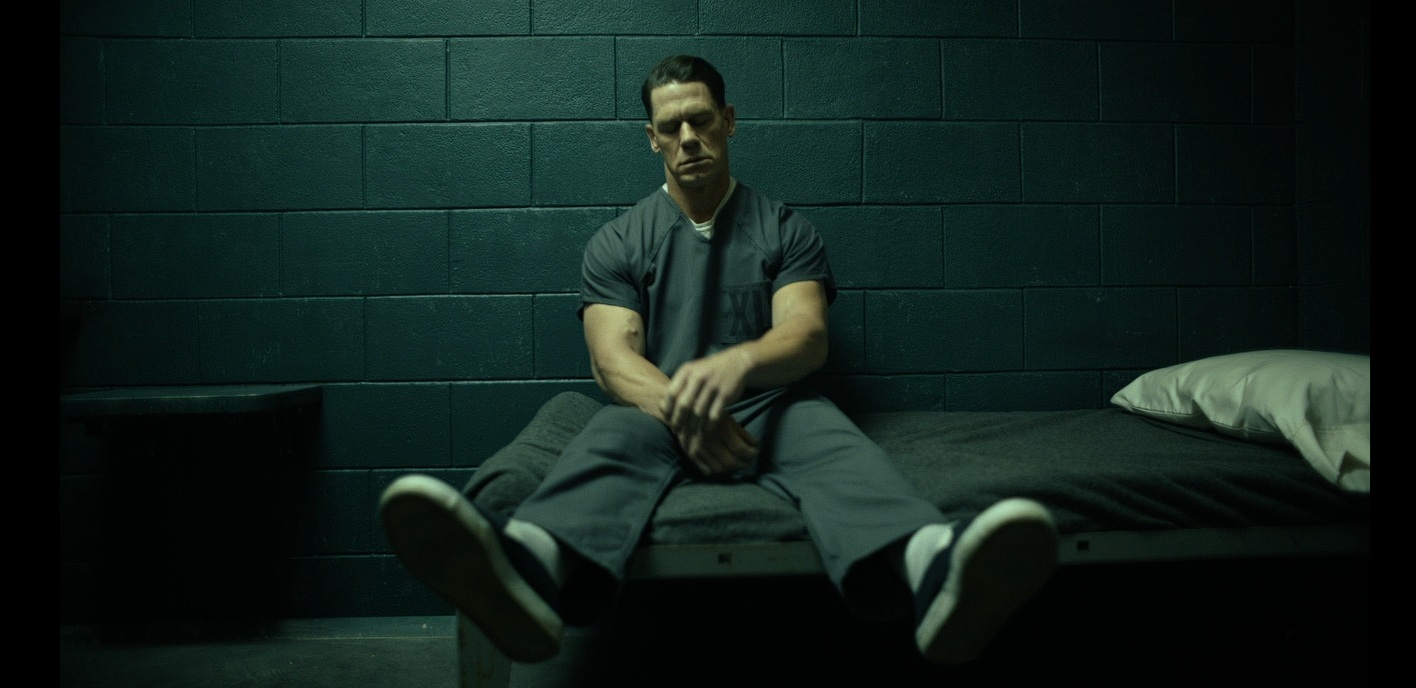
In an interview with the press ahead of the finale, James Gunn faced questions about the show’s renewal prospects. Here’s what he had to say:
“No, this is about the wider DCU and other stories in which this will play out right now. That doesn’t mean that there won’t be. I don’t want to never say never, but right now, no, this is about the future of the DCU. It’s an important character.”
For sure, this isn’t the end of Christopher Smith. Gunn has already confirmed Cena’s Peacemaker will appear across future DCU projects. Maybe it’s “Supergirl: Woman of Tomorrow”, “Creature Commandos”, or some other project. We’ll just have to wait and see.
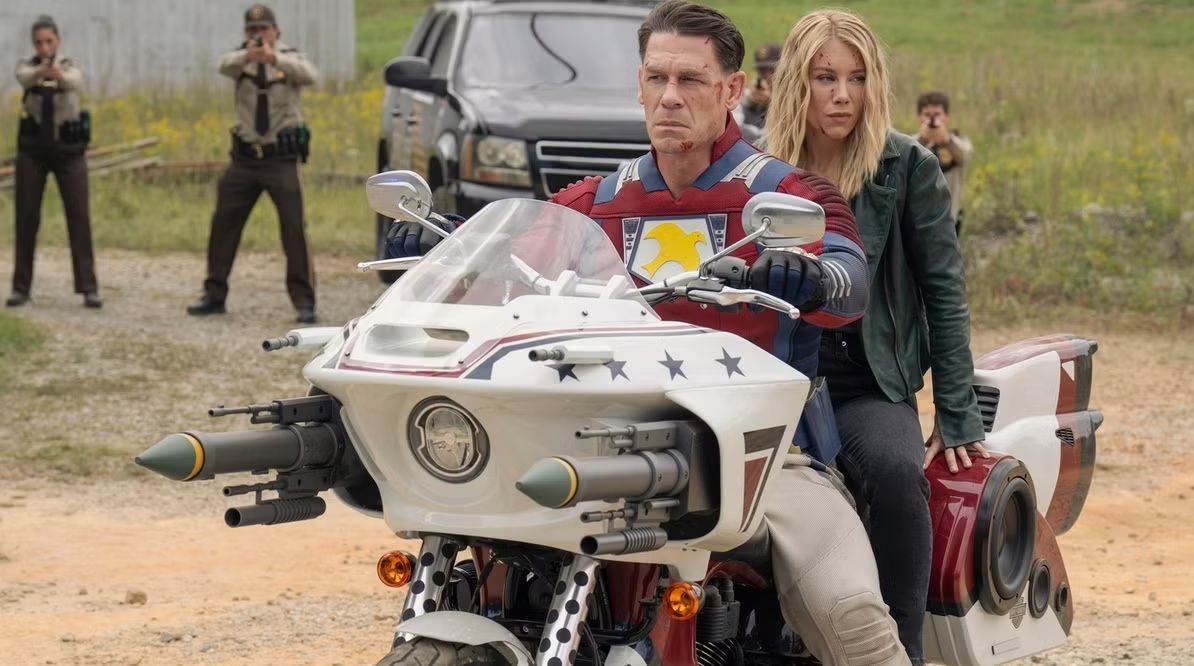
“Peacemaker” Season 2’s story was about consequences. It was about the price of survival. However, whatever comes next for the character will be about legacy and worth.
Because, for all his flaws, for all his violence and guilt, Chris Smith is still trying. And maybe that’s the whole point of “Peacemaker” in the first place. You can’t kill your demons, but you can learn to live with them.

“Peacemaker” Season 2 is currently keeping the peace on HBO Max.



